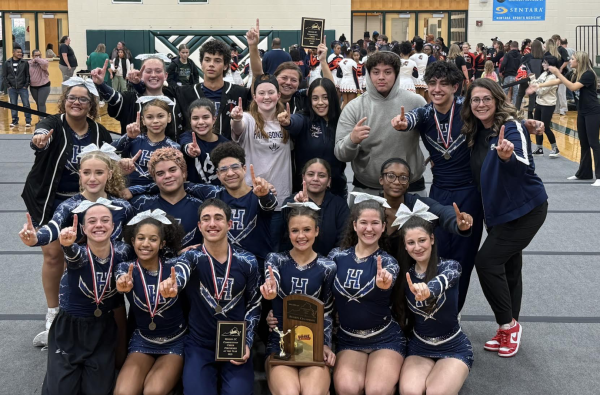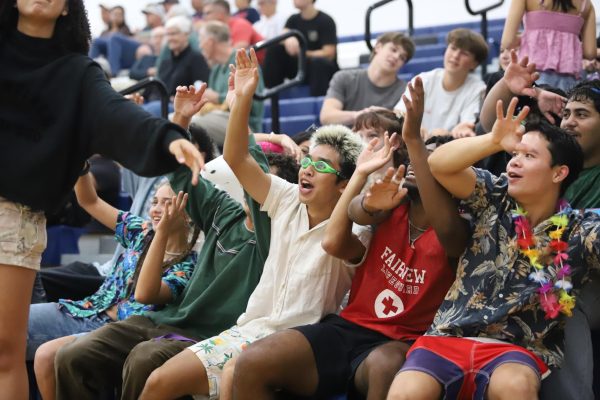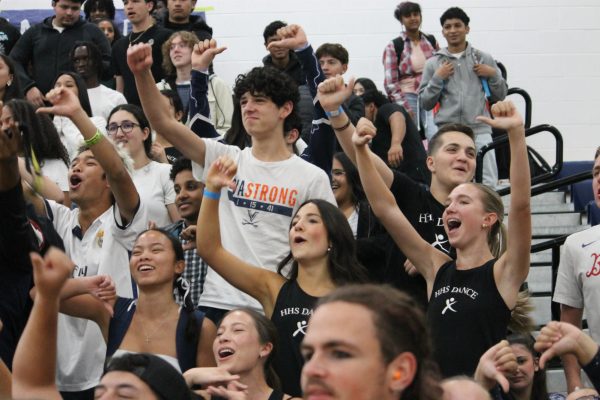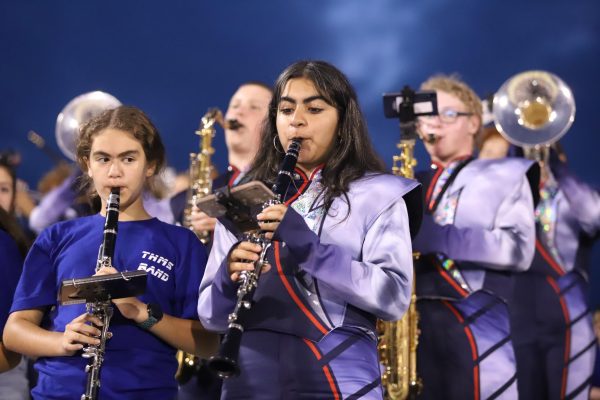75th anniversary of Auschwitz liberation holds importance to Jenkins
Photo courtesy by Wikimedia Commons
The entrance to Auschwitz. This concentration camp opened in 1940 and was liberated in 1945.
From 1941 to 1945, Jews were victims of a mass genocide under the leadership of Adolf Hitler. We now refer to those years as the Holocaust and, although times have changed, the knowledge of the past is still present today.
Auschwitz, one of the most infamous concentration camps from the Holocaust, was the location where nearly one million Jews were killed according to the Holocaust Encyclopedia. In its entirety, however, as stated in an article by NBC News, six million Jews were killed during the Holocaust, meaning that approximately 17% of all Jewish Holocaust deaths took place at the Auschwitz concentration camp.
Jan. 27, 1945, however, this major camp, a site where one million people lost their lives, was liberated by the Soviet Army; therefore, Monday was the 75th anniversary of this liberation.
Despite not having a direct familial tie to Auschwitz, HHS freshman Leah Jenkins, a Jewish student, is still affected by this tragedy and is thankful for the liberation of the major concentration camp.
“My family was in America already, so none of my family members were affected by Auschwitz,” Jenkins said. “It is still sad that a lot of people didn’t make it, but for the people that did, they were really strong and I’m very glad that it’s over. People in the next generations and my generation, we still know about it, but we didn’t have to go through it.”
Despite her personal sadness in relation to concentration camps during the Holocaust, Jenkins still believes it’s important for others to understand the struggles Jews have faced in past years.
“I think it’s good [for everyone] to know how tough Jews have had it over the years, not even just the Holocaust,” Jenkins said. “The Holocaust is one big thing, but there are many [other discriminatory actions towards Jews] and I think that the Holocaust is the most relevant one when it comes to our community and what happened to us.”
Throughout her childhood, Jenkins didn’t always agree with some of the things her mother pushed her into; however, when she’s older with a family of her own, she believes she will raise her children the same way she was raised.
“When I was growing up, my Jewish culture was mostly based on my Bat Mitzvah, but I really didn’t like going to Sunday School and I never really liked just being there all morning and learning Hebrew and prayers and stuff. I just would get really bored of it, but now that I’m older and I’ve gone through it, I understand why my mom pushed me to do it and I see now that it was important,” Jenkins said. “When I have children, I’m going to definitely have them go through what I did even if they have the same reaction I did.”
With the 75th anniversary of the Auschwitz liberation on Jan. 27, some may think Jenkins and her family would talk about their feelings about it, but due to the fact that the Holocaust is still a negative topic 75 years later, it’s not something they often talk about.
“They haven’t said anything about it to me [because] I think it’s a sore subject in our household. I understand why, but we just never really talk about it much unless it’s something we really need to discuss,” Jenkins said.
With the Holocaust being a part of the curriculum in history classes in both middle and high schools, Jenkins hopes other students develop a deep understanding that the Holocaust was a time period of attacking Jewish beliefs even though those beliefs were formed and acted upon years prior.
“People need to understand that it was because of our religion, because not a lot of people understand that it was because [Jews] don’t believe in the same thing,” Jenkins said. “We would pray every night and do all of these traditions and apparently people didn’t think that was a normal thing, so they put us in concentration camps to basically punish us for what we’ve been doing for years.”
Your donation will support the student journalists of Harrisonburg High School. Your contribution will allow us to purchase equipment and cover our annual website hosting costs.













